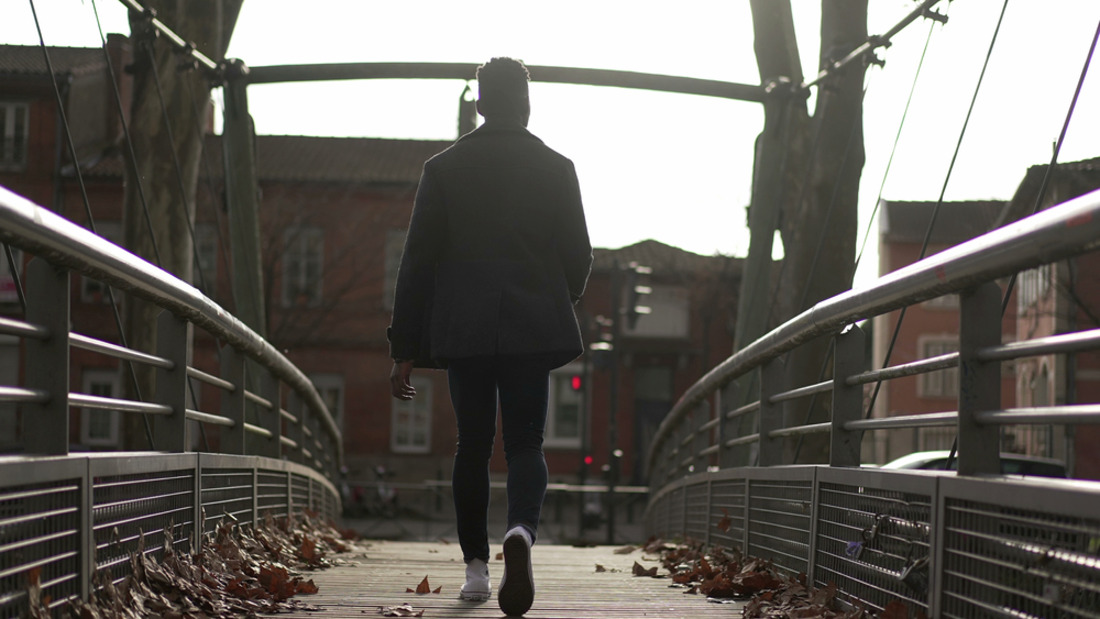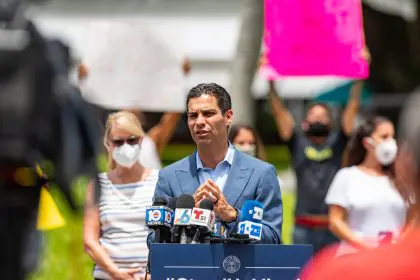In a disturbing incident that has gone viral, a young Black man was racially profiled and threatened by a group of non-Black men while walking in his own neighborhood in Sarasota, Florida. The video footage, shared by the victim’s mother on TikTok, captures the harrowing encounter and raises significant questions about racial profiling and community safety.
The incident: A walk turns hostile
The confrontation occurred shortly after Hurricane Milton made landfall, causing widespread power outages in the area. The young man, seeking to connect with his girlfriend due to poor cell service at home, decided to take a walk in his neighborhood. However, he was soon followed by several men who accused him of not belonging there, despite his insistence that he lived in the community.
As the situation escalated, one of the men appeared to reach for a gun from a vehicle, a moment that could have turned deadly if not for the intervention of another neighbor who restrained him. The victim’s mother expressed her relief that her son emerged from the encounter unharmed, but she also voiced her outrage and fear about the implications of such racial profiling.
Context: The mother’s perspective
“This was not a one-minute altercation; my son was followed for over 10 minutes. I am so happy he recorded every moment, and thankful my child is still here. But I need to know how is it OK? I do not want to live in a community that does not welcome me and my children because of the color of our skin,” the mother stated in her TikTok post.
This incident is not isolated; it echoes a long history of racial profiling and violence against Black individuals in America. The mother’s plea highlights the fear and anxiety many Black families face in their own neighborhoods.
Comparisons to past incidents
The Sarasota incident bears striking similarities to the tragic case of Ahmaud Arbery, who was chased and killed by white men while jogging in a Georgia neighborhood. Such parallels raise alarm bells about the ongoing threat of racially motivated violence against Black individuals simply going about their daily lives.
In light of this recent event, it is crucial to examine the broader implications of racial profiling. The concept of being targeted for merely walking while Black is a pervasive issue that has been documented repeatedly across the United States.
Walking while Black
The term “walking while Black” has become synonymous with the unjust treatment of Black individuals in public spaces. Numerous incidents have been reported over the years, including:
In 2022, a North Carolina prosecutor declined to charge an off-duty police officer who shot a Black man described as “just walking home.”
In 2019, a sheriff in Jacksonville, Florida, defended his department’s practice of disproportionately ticketing Black pedestrians, despite evidence showing that such enforcement was not applied equally across communities.
In 2018, a white woman shot at a 14-year-old Black boy who knocked on her door seeking help after missing his school bus.
In 2015, a university dean in Texas was stopped by police while walking, leading to accusations of racial profiling.
These incidents illustrate a troubling pattern of behavior that continues to threaten the safety and well-being of Black individuals in America.
A call for change
The Sarasota incident serves as a stark reminder of the urgent need for systemic change in how communities address issues of race and safety. As discussions about racial profiling and community relations continue, it is essential for all individuals, regardless of race, to advocate for a society that values inclusivity and safety for everyone.
As we reflect on this incident, let us remember that the fight against racial injustice is ongoing, and it requires collective action and awareness from all members of society.
















